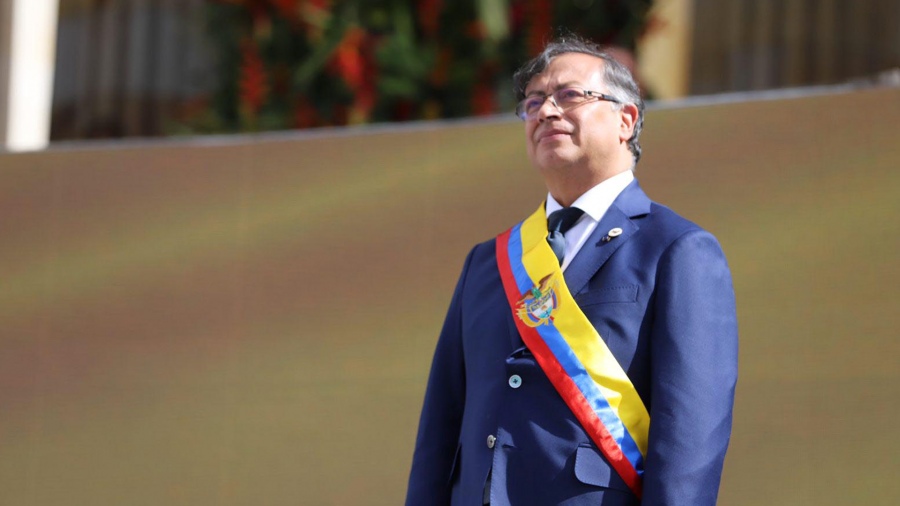
The government seeks to impose, among other points, a 19 percent VAT on online betting.
Colombia.- The Colombian Government presented this Tuesday, September 10, before Congress a new tax reform project, which aims to cover a deficit of COP12 trillion (USD2.800m) in the 2025 budget. Among the novelties of the bill is the increase in taxes on gambling platforms, a point that put the sector on alert.
The Minister of Finance, Ricardo Bonilla, explained in statements to the press: "It is a law to complement the financing of the 2025 budget by 12 trillion pesos and has three main axes: The first, some stimuli for economic reactivation; second, the identification of new sources of tax revenue, and third, an adjustment in the fiscal rule."
The Colombian Congress must approve the 2025 budget in these weeks, with the majority of the opposition insisting that the deficit is greater than those 12 trillion pesos.
The President Gustavo Petro warned: "If Congress does not approve the budget, the Constitution says that the Government decrees it." The new tax reform project seeks "to reduce the income tax for all companies in Colombia and more so for small and medium-sized enterprises" and to finance "the imbalance with the surcharge on oil and coal, the carbon rate, with the VAT on games of chance and gambling online, and the reduction of exemptions."
The project proposes a 19 percent VAT for games of chance and gambling operated exclusively online. Today the platforms do not pay this tax and will be at the same level as localized games (casinos).
In the justifications of the project, the government says: "Gambling can be considered luxury goods. Unlike essential goods, such as food and medicine, which are part of the basic basket, gambling is not necessary for everyday life nor for the fundamental well-being of people. By taxing these luxury goods with VAT, it ensures that those who have the capacity to participate in these services contribute progressively to the tax administration, without affecting those who do not participate in these activities. A key aspect of gambling is its inelastic nature. In economic terms, this means that the demand for these services would not be significantly affected by changes in price, such as an increase due to the application of VAT."
And it adds: "The current exclusion of VAT for online gambling creates a distortion in the market. This is because these digital services enjoy preferential treatment compared to physical establishments that offer gambling and are already taxed with this tax. This difference in tax burden can lead to unfair competition and market distortions, where consumers might opt for online platforms to avoid paying taxes, negatively affecting physical operators who comply with their fiscal obligations."
Furthermore, the document explains that "by applying VAT to online platforms market conditions are equalized, promoting fair and balanced competition among all operators, regardless of the channel through which they offer their services."
According to the statement of reasons from the Ministry of Finance, "taxing online gambling would generate tax revenues of about $2.1 trillion in 2025 and would not have inflationary impacts on the economy."
See also: Colombian lotteries increased health fund transfers by 25%
When the Executive's intention to implement this tax was known, the gaming sector firmly opposed the tax measure. The Colombian Federation of Games of Chance and Gambling (Fecoljuegos) issued a statement in which it assured that "a tax now would make the online gaming sector unviable" in Colombia.
In that sense, they stated that a new burden would leave them breathless to help move the economy and, mainly, contribute to health, since this type of activity finances part of the system.
On the other hand, in the statement, Fecoljuegos referred to the effect that the implementation of the tax could have on employment, since, according to the statistics presented by the federation, the activity generates more than 150,000 jobs between direct and indirect among online game operators and other companies that are part of the value chain, where many are vulnerable population, single mothers, diverse population or with disabilities.
In the complaint, Fecoljuegos alerted the absence of the State in the control of illegal sites: "The sector currently faces a growing phenomenon of illegality. There are numerous betting platforms that do not have authorization from the regulator, affecting not only the security of the player and public finances but also competing unfairly with the 15 legal platforms," they stated in the letter.
For his part, Juan Carlos Restrepo, president of the Colombian Association of Gaming Operators (Asojuegos), said that the tax would be directly passed on to the consumer, who today has a return of between 90 and 95 percent, meaning that for every peso bet between 90 and 95 cents return to the public bettor, and if the tax is applied it would be about 78 percent.
"Bettors would prefer to bet on international platforms that do not charge them VAT and that guarantee the same return that they currently have with the companies that offer the entertainment service in Colombia. Those resources that are currently collected for health would go to companies that neither pay taxes in Colombia nor operate legally in the country," added Restrepo.








